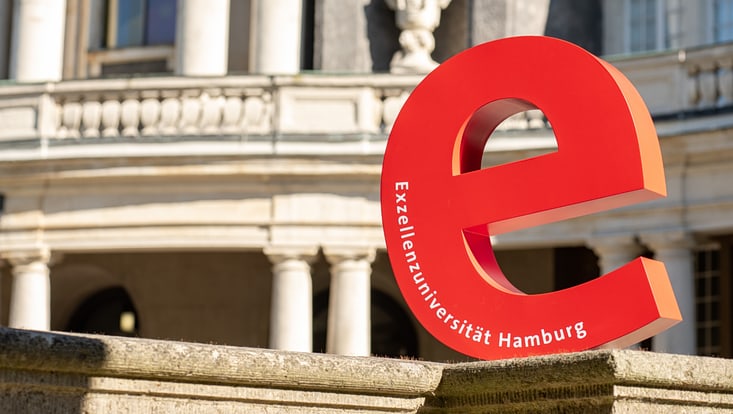Seminar on desk research in Studium GeneraleOf Pencils and Post-Its
26 February 2021, by Christina Krätzig
This semester, visiting scholar Prof. Dr. Stephan Porombka and Julian Farny from the Berlin University of the Arts are enriching the subject range at Universität Hamburg with a very unusual seminar: together with their students, they are examining their desks.
Dr. Prorombka, you are a professor of text theory and manuscripts at the Berlin University of the Arts. Now, in Hamburg, together with your colleague Julian Farny, you are offering a seminar to research desks. What is that exactly?
Workplace studies are an established field of research in sociology. We look at workplaces and ask how people work. How do they set themselves up, what do they need to be able to work properly? These are important research questions.
In our seminar, we look at the tables where we work, as landscapes in a constant state of change—made up of books, textbooks, papers, notes, pens, cables, and devices. The students will create comprehensive journals of text and pictures that reflect their own working style. They will also generally document how students in Hamburg are currently set up and how they work. The information is of interest for a range of disciplines, for psychologists as well as learning researchers, sociologists, anthropologists, or historians. There will be things in the pictures that we don’t even notice that will astonish observers in 30 years. They will work a little like a time capsule.

Is it art?
Absolutely. Just the act of close observation is an art in itself. Students learn to transform the mundane into something special, and that is exactly what art does. It transforms everyday things, turning them into something special, a process of increasing aesthetic appeal which improves the everyday. We always tell our students that they cannot do anything wrong. When they ask how to start with an artistic process like this, I say “you’re already there. Whenever you observe and reflect on what you see, you are in the process.” It is insanely wonderful.
Why do you enjoy it so much?
The material is unlimited, and the students are the ones who provide it. Had I remained a scholar of German studies, I would have always had the same specific material, in my case, 19th century German literature. This material is limited, and students can only be given tasks to carry out within the bounds of my existing knowledge. In our seminar on desk research, the participants create something unique. Every week, they show us something very private, they open themselves up and work with their ideas. We, as their teachers, are always surprised with what they show us. We feel very lucky to receive such gifts, and that is fun!
Why do people participate?
I think that the word ‘practical’ always triggers a wonderful reflex: “Finally, I can do something myself!” Doing something practical was also a promise in this seminar that all the participants were excited about. They were also allowed to pursue their research in whatever way they wished. We always say, “You are the researchers, develop what you think is the best research structure!” For many of them, that is something new, and it’s exciting.
You have already gained some experience with Studium Generale at other universities. What is so special about it?
It’s about providing key skills that go beyond a narrow field of expertise. Today, it is a lot to do with providing an education that has value in the market place, increasing ‘employability.’ But it’s important to reach beyond our own boundaries, and this also teaches essential skills. Studium Generale brings people from a range of disciplines together. They learn that their particular view of the world is just one of many possibilities, and they often come to exciting collaborations.
Will you take part in further development of the Studium Generale in Hamburg?
The idea is quite appealing. Next semester I am holding an online lecture titled “Text—City—Text.” It deals with how one reads a city, what one writes about a city, or how one moves through a city in writing. In an accompanying seminar for Hamburg students, Julian Farny leads writing exercises to teach participants how to engage with their city and their environment. It is kind of a continuation of this seminar.
Studium generale
Studium Generale at Universität Hamburg is a joint program provided by the Faculty of Humanities, the Faculty of Education, and the Faculty of Business, Economics and Social Sciences. It is an elective area that opens students to the possibility of enriching their subject-specific studies with new perspectives, and to attend lectures held by other participating faculties. Universität Hamburg is inviting exceptional visiting scholars and researchers from Winter Semester 2020/21 to continue developing the Studium Generale. The series begins with the seminar offered by Stephan Porombka and Julian Farny. This measure is financed with funds from the Excellence Strategy of the Federal and State Governments.









